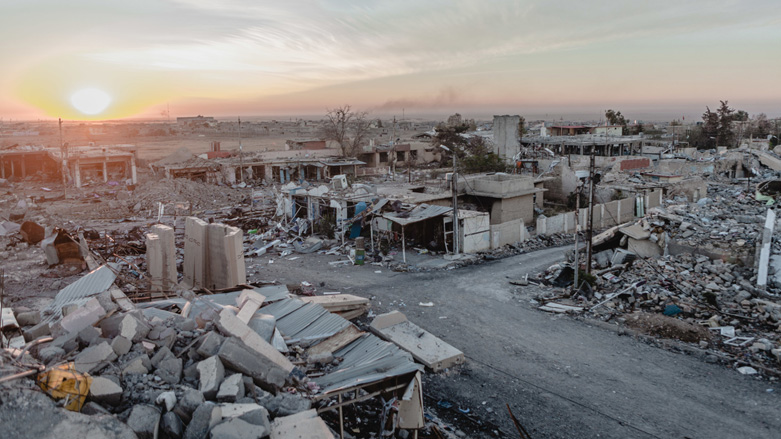Security is biggest challenge for minorities in areas liberated from ISIS

Part I of Kurdistan 24’s interview with Delovan Barwari, US representative of the Barzani Charity Foundation, provided an overview of the charity’s activities, working to help IDPs, refugees, and school children. Part II, below, describes the obstacles to addressing a major problem: the return of IDPs and how that might be addressed.
WASHINGTON DC (Kurdistan 24) — As Delovan Barwari explained to Kurdistan 24, the biggest obstacle to the return of the 765,000 Internally Displaced Persons (IDPs) now living in the Kurdistan Region is the lack of security in their places of origin.
That is true for the roughly 238,000 Yezidis, who have found refuge in Kurdistan, as well as the 56,000 Christians there.
In the Yezidi area of Sinjar, neither the Kurdish Peshmerga, nor the Iraqi Security Forces (ISF), are in control. Rather, the area falls under the sway of “the Popular Mobilization Units (PMUs) and elements of PKK (Kurdistan Workers’ Party) fighters and Yezidi militias that are supported by them,” Barwari explained.
“There are some militias that are pro-KRG (Kurdistan Regional Government),” he added, “but they don’t belong to the KRG.”
Although the Islamic State has been driven out of Sinjar, relatively few Yezidis have returned there, and Barwari cited a recent report from the UN High Commissioner for Refugees (UNHCR) that helps explain the problem.
A survey of those in the IDP camps, conducted earlier this year, found that only three percent of Yezidis intend to go back to Sinjar over the next 12 months. 74% said that security was a “major concern,” he explained, and they “believe that Sinjar is not safe enough for them to return.”
“The Christian situation in the Nineveh Plains is not much better than Sinjar,” Barwari said. “Although some people have returned, the vast majority still live in the Kurdistan Region.”
Two rogue militias are responsible for the insecurity in the Nineveh Plains, Barwari stated: the Liwa al-Shabak and the Katai’ib Babiliyun.
The Liwa al-Shabak is compromised of a local religious minority, the Shabak, while the Katai’ib Babiliyun claims to be a Christian militia, but is dominated by Shiites. Both of them are supported by—and answer to—Iran, and the US sanctioned both last month.
While a lack of security is the most fundamental obstacle to the IDPs’ return, there are other problems as well. “The infrastructure is destroyed, most of the homes are destroyed. Unemployment is a major issues,” as is a “lack of pubic services,” Barwari explained.
Asked how this situation could be improved, Barwari stressed the importance of restoring security. “The reason why the Kurdistan Region is more developed—better economy, more prosperous—than the rest of Iraq is because of the security situation,” he said. “The security situation allowed Kurdistan to develop.”
To restore security, he continued, “the Popular Mobilization Units and militia groups need to leave the area.”
“Sinjar and the Nineveh Plains should be controlled by police forces and security forces” coming from the local population, and then “the Peshmerga forces, along with the Iraqi Army, can play a supporting role.”
“There is a mechanism to normalize the situation, not only in Sinjar and the Nineveh Plains, but in all of the disputed areas,” he continued. That is by “following the Iraqi constitution” and implementing Article 140, which calls for a census, followed by a referendum to determine the fate of those areas.
“Either the KRG Peshmerga forces will control those areas or the Iraqi Army” will, and the people should be allowed to decide that,” Barwari concluded, “I think that’s the best solution to move forward.”
Editing by Nadia Riva
